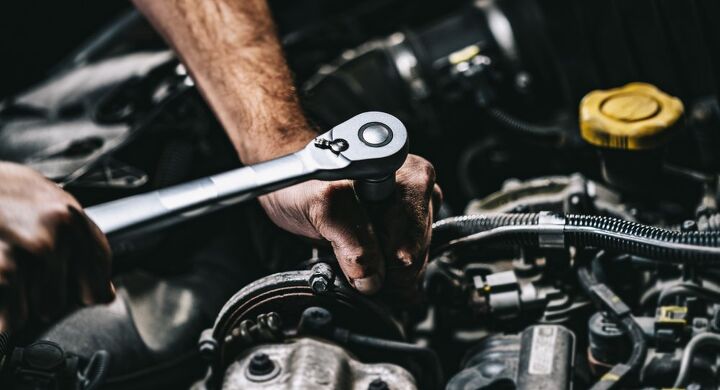#ICEs
VW Plans Mass Culling of Combustion Cars, Loftier Margins
Practically every automaker on the planet has begun signaling a desire to change with the times by collectively revising their business strategies. The new hotness involves lower volumes, higher margins, and electric vehicles with the ability to push connected services allowing manufacturers to charge you piecemeal for just about every feature imaginable.
While Volkswagen Group has been at the forefront of those trends since the 2015 Dieselgate scandal helped force its hand, it often suggested that the shift to EVs would be a boon to low-income families. It was hardly the only automaker to make such promises, nor has it been the first to break them after deciding that perhaps there’s more money to be made with premium vehicles. VW has decided that its ideal strategy involves culling internal combustion vehicles by 60 percent over the next eight years and focusing on higher-margin products yielding superior profitability.
Study Suggests Time Plays Important Factor in Repair Costs for EVs Vs ICEs
Since the hottest news surrounding the automotive industry today happens to be rolling updates about supply shortages, factory downtime, and how it’s not impacting manufacturing profits as much as anticipated, I’ve been diving back into studies and research pertaining to the future of the automotive industry. It’s a little more enjoyable for my own gray matter to process and might provide readers with a touch more to ponder than another story about how automakers are stalling production because an insufficient number of doodads were placed on a boat that’s waiting off the California coastline.
Earlier this week, we examined research exploring how much electric vehicles actually cost to run and that theme will persist. There’s a new study suggesting EVs boast lower repair bills than gasoline-driven alternatives. But there’s an interesting tipping point that occurs early in a vehicle’s lifespan that makes it happen. Before that, it’s cheaper on average to maintain something equipped with an internal combustion engine.
Study: Do EVs Really Cost Less to Run Than Internal Combustion Cars?
With the volume having been turned down on just about every business sector imaginable, automakers have spent most of this year explaining how supply chain shortages are impacting production and making promises about electric vehicles. However, the rhetoric surrounding electrification has gotten so aggressive that it’s fast becoming another contentious issue, leading to vicious arguments as people square up to take sides. Part of this is due to the enterprising way in which zero-emission vehicles are being marketed and subsequently embraced by world leaders that don’t know jack about the manufacturing or the environment. Much of the discourse surrounding electrification (pro or con) lacks nuance and leads to businesses promising whatever they can in an effort to obtain your unquestioning belief.
For example, EVs are frequently promoted as boasting substantially lower operating costs due to there being no reliance on liquid fuel. Though finding the truth actually requires one to make a comparative analysis while taking into account how, where, and what you’re driving. There’s even a new study out from the Anderson Economic Group (AEG) attempting to determine the true savings of swapping to an EV where the researchers ultimately decided gasoline-powered cars were actually easier on the wallet. However, that likewise requires loads of clarifying context and conditional factors.
FCA, GM Stocking Up On Tesla's Greenhouse Gas Credits
General Motors and Fiat Chrysler Automobiles have reportedly reached an agreement to purchase federal greenhouse gas credits from Tesla. While it’s common knowledge that the electric carmaker has raked in revenue by selling credits for years, disclosures with the State of Delaware help paint a clearer picture.
Apparently, GM filed to buy credits from Tesla earlier this year while FCA bought them on several occasions in 2016, 2018, and again earlier this year. Considering FCA’s American lineup, we’re not exactly quivering with disbelief. CEO Mike Manley could show up at a press conference, light a pool of gasoline on fire, and suggest it was Dodge’s new corporate model before we’d raise an eyebrow.
As unsurprising as FCA’s inability to adhere to present-day pollution mandates happens to be, there is a story here. The rising demand for greenhouse gas credits is changing the industry in some rather interesting ways.
Gas Be Gone: California Working on Bill to Banish Internal Combustion Cars by 2040
California Assemblyman Phil Ting, a Democrat chairing the chamber’s budget committee, says he intends to introduce a bill that would allow the state’s motor vehicle department to register only automobiles that emit no carbon dioxide, such as battery-electric vehicles or hydrogen fuel cell cars.
The proposed legislation would ultimately ban internal combustion engines, mimicking similar actions taken by France and the United Kingdom. Ting claims that, without a plan in place, California’s attempt to dramatically reduce greenhouse emissions by 2050 will prove ineffective.




















Recent Comments